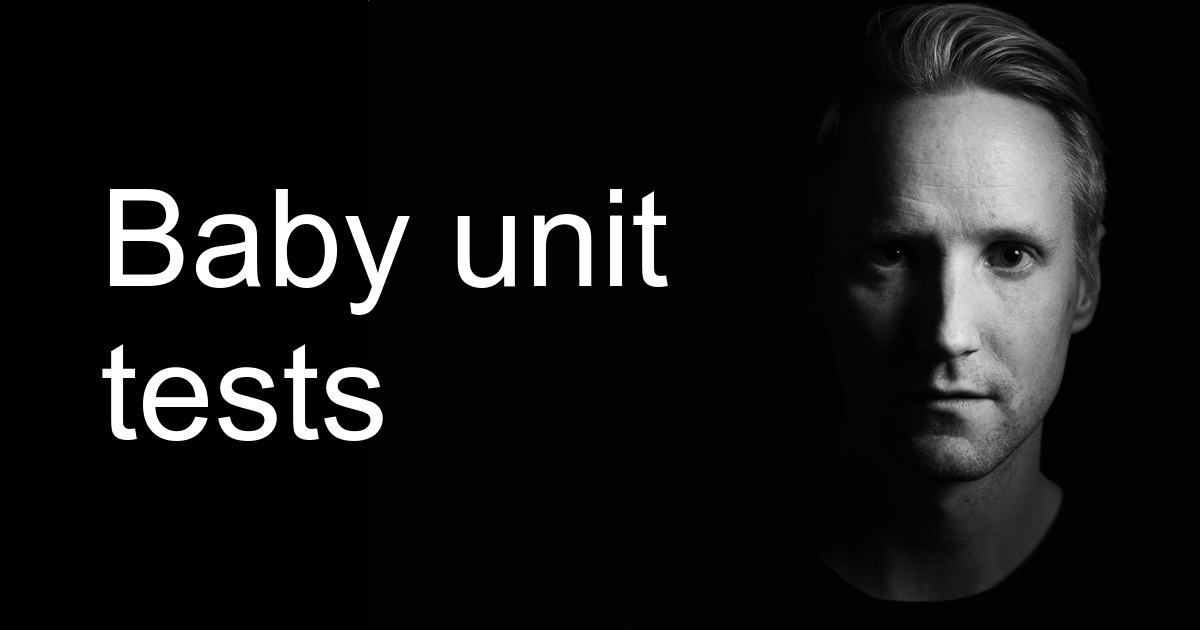- 53 Posts
- 1.3K Comments
I don’t really want to be talking past each other. The point I am refuting is that even if type-safety can help reduce the amount of bugs shipped, this is not the only metric that matters to measure the value of the software being developed.
bugs are really annoying
And being late or never delivering out of fear of shipping buggy code is even worse.
Some years ago, I worked on a crypto project that was financed via an ICO. This meant that whatever money the company was going to get was already in their hands, and their only job was to make sure they could prove they’ve done a best effort to deliver what was promised to investors.
Because of these incentives, the engineers were more concerned about covering their asses regarding bugs than to actually get the software out in the hands of users. The implementation was in python, and to the team it was easier to justify spending time on getting 100% mypy coverage than to get things in hands of users to see the value of what we promised to deliver.
In the end, by the time the team managed to deliver, the code was super well-tested, there were 0 mypy warnings and absolutely zero interest from other people in adopting our tool because other competitors have launched a whole year before them.
How many billion dollar companies were built on dynamically typed languages? Do you think that companies/bosses/investors care about the compiler warnings or whether you can deliver/iterate faster than the competition?
nobody likes plumbing, but we all know it’s necessary.
Is it, really? Are we all working on mission critical software? We are living in a world where people are launching usable applications with nothing but the prompt to an LLM, ffs, and you are there trying to convince yourself that pleasing the Hindley-Milner gods is fundamental requirement in order to deliver anything?
Good engineering is about understanding design constraints and knowing where to choose in a myriad of trade-offs. It’s frankly weird to think that such an absolute, reductionist view like yours got so much support here.

 1831·17 days ago
1831·17 days agoFYI: it looks like Trump is going to win the popular vote on this one as well.

 5·24 days ago
5·24 days agoThe idea is not to have to talk with everyone in the circle, but to have enough people to create a long tail of niche interests.

 6·25 days ago
6·25 days agoTakahe is IMO the opposite of “single user software” . It shines when you want to host multiple users with multiple different domains and identities.

 1·1 month ago
1·1 month agoRight, but the problem with them is “bad usability”, which amounts to “friction”.
Like I said in the original comment, I kinda believe that things will get so bad that we will eventually have to accept that the internet can only be used if we use these tools, and that “the market” starts focusing on building the tools to lower these barriers of entry, instead of having their profits coming from Surveillance Capitalism.

 4·1 month ago
4·1 month agorequiring a proof of identity or tracking users is a privacy disaster and I’m sure many people (especially here) would outright refuse to give IDs to companies.
The Blockchain/web3/Cypherpunk crowd already developed solutions for that. ZK-proofs allow you to confirm one’s identity without having to reveal it to public and make it impossible to correlate with other proofs.
Add other things like reputation-based systems based on Web-Of-Trust, and we can go a long way to get rid of bots, or at least make them as harmless as email spam is nowadays.

 12·1 month ago
12·1 month agoNot even the biggest tech companies have an answer sadly…
They do have an answer: add friction. Add paywalls, require proof of identity, start using client-signed certificates which needs to be validated by a trusted party, etc.
Their problem is that these answers affect their bottom line.
I think (hope?) we actually get to the point where bots become so ubiquitous that the whole internet will become some type of Dark Forest and people will be forced to learn how to deal with technology properly.

 9·1 month ago
9·1 month agoThis is not a matter for instance admins but for proper community moderation.

 4·1 month ago
4·1 month agoYes, it is possible.

 1·1 month ago
1·1 month agoMy point is that we should take their current approach as a good thing.
I"m not saying that we should blindly trust them, but I am saying that if we want corporations to Do The Right Things, then it’s a lot better to let them have a seat at the table and participate with the community than to simply ostracize them forever because of their past wrongdoings.

 41·1 month ago
41·1 month agoThey don’t “need” the SWF. If Zuckerberg wanted to simply takeover the control of ActivityPub, they could just use their existing devrel people that work with the W3C and push the changes directly at the “authoritative” organization.

 1·2 months ago
1·2 months agoIf you have examples of relays differentiating themselves based on moderation policies, it would be appreciated. Not just “we are extreme free speech holders” vs “we pay attention to some laws here”. What nostr relay is actually running a strict filter, or do any type of analysis on the message content beyond “payment only”?
as if instances have not gone down with users identities.
If instances go down, there are still lots of possible backups: someone can recover the domain name and regenerate keys (or even recover a database copy). If someone loses a private key, there is no turning back. The fact that (some) poorly managed system are not recoverable does not mean that it is as fragile as something as nostr that gives up completely on making it.
allowing users the ability to drive their own experiences.
The same can be achieved on ActivityPub, no new protocol is needed for that.
Also, this is not matter of individualism, but of UX. It’s “nice” when users have the ability to make decisions on their own, but it is terrible when they have to make all decisions on their own to get started.

 1·2 months ago
1·2 months ago“If you think sex workers ‘sell their bodies,’ but coal miners do not, your view of labor is clouded by your moralistic view of sexuality.”
If you are going to start a conversation by attacking a strawman, then I really will not get into it.
acting in commercial porn is just as normal and unremarkable as any other job
If this is your idea of being “sex positive” then I really do not want to get into this argument. I can guess this will quickly play out to any objection as “pearl clutching” and I will stick to the point that your attitude is completely dehumanizing and that there is nothing “positive” about reducing sex to the mechanical/physical act.
Like I said in the first comment, if you feel so strongly about this, go ahead and create your own and see how far it goes. When you start putting some Skin In The Game you will get more credibility or at least accept that things are Just Not That Simple.

 3·2 months ago
3·2 months agoadvocating for them to be treated on absolutely equal footing; they’re specially marked so that people who don’t
You lamented the fact that unlogged users can not see it and that they can not be found as easily. This is the same as “make it available to the public without any type of check”.
It’s treating sexuality as something toxic
Sexuality != Porn, and “toxicity” is dose-dependent. Eating a bit of broccoli is good for you. Too much at once and you get thyroid dysfunction.
There are plenty of things that are good and normal, but need to be discussed/presented with a proper context and (most importantly) people need to have a better understanding of the potential bad consequences if it is abused or corrupted.
You don’t see young people destroying their lives because they were promised they could make a lot of money by knitting sweaters or working as electricians, but cases of vulnerable women who regret getting into sex work are infinite.

 2·2 months ago
2·2 months agoDo you think the availability of porn within an online space has no effect on what kind of culture develops there?
Of course it does have an effect, but there is a difference between “can be found” and “should be encouraged to be treated on equal footing as any other community forum”.
Much like “absolute freedom of speech” platforms that inevitably end up catering to people who want to say only repulsive things without repercussion, what do you think will happen if you create an online space and put a big billboard saying “here you will always be free to share your NSFW content”?
Content discovery of porn should not be as easy and it should not be trivialized under the pretense of “sex positivity”. One can have an absolutely open mind about sex and sexuality while still wanting to keep a clear boundary of when/how/whom to talk about it.

 5·2 months ago
5·2 months agoThe problem is not code. The problem is that no one wants to take this responsibility. Every one wants to talk about supportive they are on sex positivity until some men in uniform knocks on their doors because they are running a website that is available for minors all around the world.
Also, I don’t even want to get in the discussion of “sex positivity” being associated with “easily available porn”. Like you said, porn is easy to find and I really doubt that the someone who is savvy enough to use Lemmy would have trouble to know where it is.

 5·2 months ago
5·2 months agoIf this is so important to you, you are still very much free to start your own instance and see how far it goes.








Depends. What is the cost to get there? Will that sacrifice openness? Will that sacrifice portability? Will that require ossified structures that will make development of new applications more difficult?
Look, the article is talking from the perspective of someone who is developing web apps in Ruby. Performance is not a huge concern. Processes being crash-proof are not a concern. You know what is the concern? To be able to validate ideas and have something that bring customers willing to pay real money to solve their real problems.
For his scenario, forcing to define everything up front is a hindrance, not a benefit. And having GP screaming at it like this for having this opinion is beyond ridiculous.